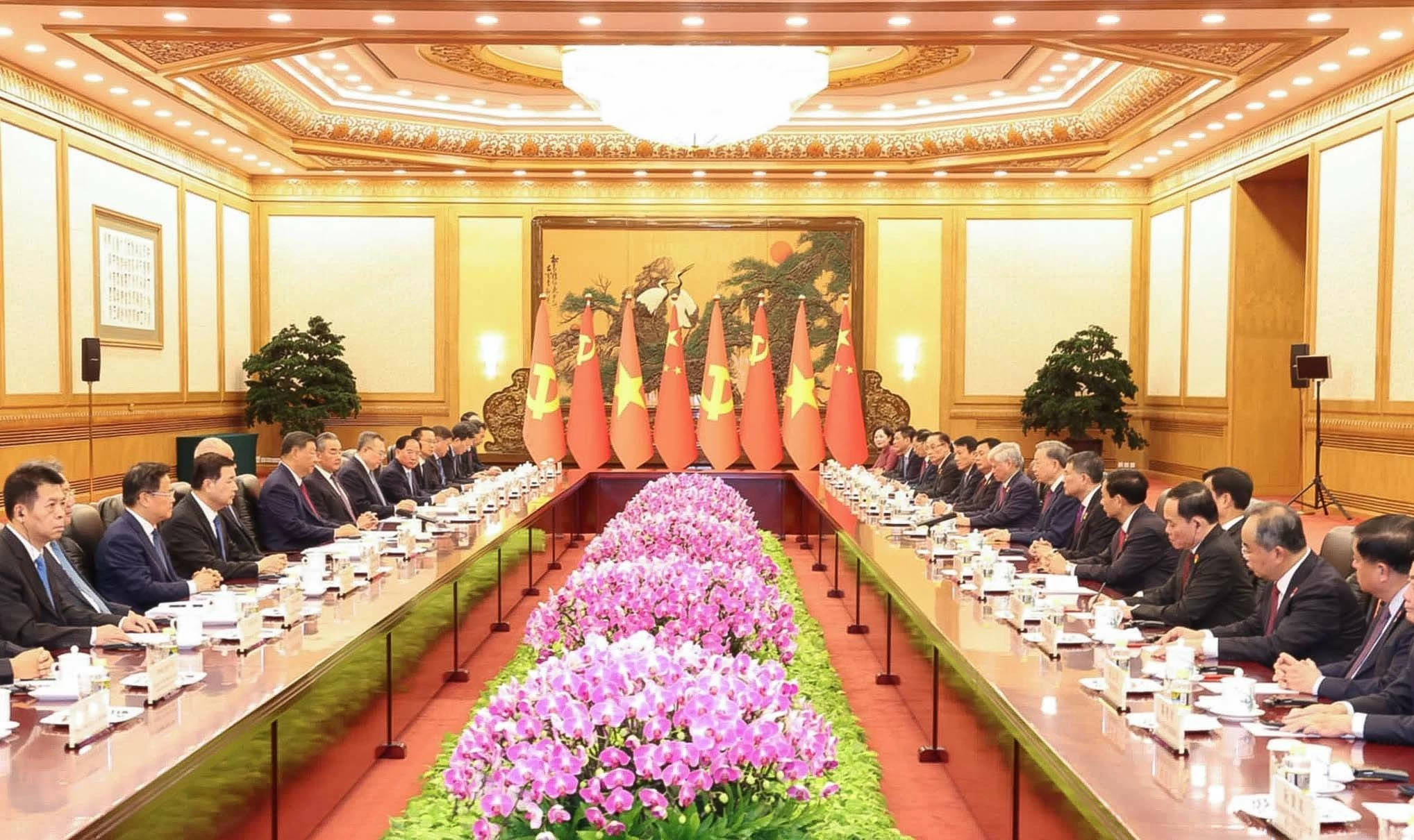
China and Vietnam reaffirm mutual interests that transcend boundaries: Indian scholar
Latest
 |
| General Secretary, President To Lam and General Secretary, President Xi Jinping hold talks in Beijing, on August 19, 2024. (Photo: WVR/Nguyen Hong) |
Asian nations as Vietnam understand that the hard-won freedom and independence must be leveraged to provide for its people, while ensuring security and stability.
It is with this sense of purpose and commitment that the Politburo member and President of the Socialist Republic of Vietnam To Lam, elected in May 2024, also unanimously chosen as General Secretary of the 13th Central Committee of the Communist Party of Vietnam (CPV) on August 3, 2024, chose China as the first destination of his foreign visit from August 18-20, 2024.
General To Lam, during his inaugural address as President of Vietnam, expressed his desire to effectively deploy the foreign policy of multilateralism, diversifying foreign relations, imbuing the diplomatic identity of "Vietnamese bamboo", proactively and positively. He expressed his commitment towards combining the Party's external affairs with State diplomacy and people's diplomacy, in addition to promoting and deepening the relationship between Vietnam and other countries, especially neighboring countries and traditional friends.
Professor Reena Marwah emphasized economics as the cornerstone of Vietnam-China cooperation.
The visit of General Secretary, President of China Xi Jinping to Hanoi in December 2023 resulted in establishing the “China-Vietnam Community with a Shared Future carrying a Strategic Significance”. Ever since Vietnam signed the Comprehensive Strategic Parnership (CSP) with USA, China had further pushed for elevation in bilateral ties, ensuring high-level visits.
The Communist Party of China (CPC) and the CPV have time and again, reaffirmed the version of Marxism-Leninism ideological orientations and systems suitable to the circumstances and development path of their respective countries. Despite the challenges of overlapping maritime claims and tensions in the surrounding seas, the two countries prefer to reiterate their shared interests, including maintaining regime security and stability.
Prior to arriving in Beijing, General Secretary To Lam made a stopover in Guangzhou, in the southern province of Guandong. This not only marked the leader’s articulated commitment in following the "red footprints" of the late Vietnamese leader Ho Chi Minh, with visits to the historical sites where revolutionary activities were conducted, but also to signal the significance of the economic robustness of bilateral ties. China’s Guandong province alone accounts for a fifth of total bilateral trade, which is expected to touch USD 200 in 2024, enjoying an industrious collaboration with Vietnam in various fields, including trade and investment.
Vietnam’s economic progress, becomes a positive sum contribution for China. Vietnam’s trade balance is heavily tilted towards China, the latter being a vital source of imports for Vietnam’s manufacturing sector.
Concerning the Belt and Road projects, one of the planned high-speed lines would run from Vietnam's port cities of Hai Phong and Quang Ninh through Hanoi to Lao Cai province, which borders China's Yunnan province; the other would run from Hanoi to Lang Son province, which borders China's Guangxi region, passing through an area known for global manufacturing facilities. China can ill-afford to falter in these investments.
The Professor has highlighted Vietnam’s multilateralism, stressing that the raison d’etre to fortify Vietnam’s relations with China must also be located within Vietnam’s multilateralism and balanced diplomacy.
While the visit of the Vietnamese leader reaffirmed the strength of the bilateral relationship, with the expectation that the present leader would follow in the footsteps of his predecessor, the late Nguyen Phu Trong, Vietnam has always kept its options open, he noted.
China knows that Vietnam will continue to adhere to its Four No’s Foreign Policy, even as it balances relations with other middle and large powers in its quest for freedom of navigation and territorial integrity, Professor Reena Marwah reaffirmed.
* Professor Reena Marwah has published over 20 books; she is the author of India And Vietnam Relations: Development Dynamics and Strategic Alignment, published in 2022, Springer, Singapore. She is a Professor at Jesus and Mary College, University of Delhi
















